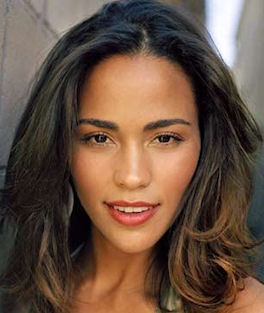Historical Summary of Canadian Elections
In reading the comments to this post by Ezra Levant I came across yet another disingenuous talking point about the Conservatives not getting a clear majority in the recent election. Such stupidity falls under the category of "If you repeat B.S. enough times, Sheeple will accept it and no longer challenge it."
I pride myself on being a stickler for facts so such comments spur me on! Here's what I wrote to the fellow who made it:
Would you and your ilk please stop with your stupid, phoney talking point that the Conservatives only got "xx %" of the vote. This disingenuous comment has been false from the first time it was uttered and is even more so today. If you're so ignorant that you don't actually understand what I mean then please look back at the popular votes of every government where there have been at least 3 [significant] parties. It's how our system works and is basic math. So just cut it out as it's really boring us all.
When I wrote this I knew anecdotally that I was accurate but didn't know all the details. It being a miserable evening in Vancouver, I decided to do a little research. Here are some results that I think you'll find as fascinating as I did (click on the image to see it larger) :Note: The # of Parties is based on those achieving at least 5% of the popular vote.
For those so inclined, you can download a copy of the Excel spreadsheet, complete with additional footnotes, by clicking here. The sources I used can be found here and here. If you find any errors, please let me know!
Here are some interesting facts:
- The lowest popular vote that resulted in a minority government was 35.89% by Joe Clark's Conservatives in 1979. Note: There were three major parties at the time.
- The largest popular vote that resulted in a minority government was 46.13% by Arthur Meighen's Conservatives in 1925. Note: There were three major parties at the time.
- The lowest popular vote to win a majority government was 34.84% by John A. Macdonald and his Conservatives in 1867 (Canada's first parliament). Note: There were only two major parties at the time.
- In a 2-party race, the largest popular vote ever achieved was 56.93% by Robert Borden's Unionists in 1917.
- In a 3-party race, the largest popular vote ever acheived was 53.66% by John Diefenbaker's Conservatives in 1958.
- Even at the height of his popularity, Pierre Trudeau only won only 45.37% of the popular vote [in a 3-party race in 1968].
- Only 6 times in Canada's 40 federal elections has a party ever achieved more than 50% of the vote. Four of these times were when 2 major parties were running, the remaining two times were when 3 major parties were. The most recent of these was in 1984 when Brian Mulroney just squeaked over the half-way mark with 50.03%.
- Four times in Canada's history the winning party has had a lower popular vote than the 2nd place party [1896, 1926, 1957, & 1979].
- Those who believe that a government only has legitimacy if it gets the majority of the votes [ie. 50% + 1] thus must believe that only 6 of Canada's 40 governments had any legitimacy.
- Perhaps the only consistent statistic is that since 1988, the voter turnout has been on a steady decline downward. :-(







































2 comments:
Nice research job! Sadly, no Liberals will click on your link; they do not like clouding their rhetoric with verifiable facts.
Agreed, that is nice work. It will provide me hours of enjoyment when I encounter leftards in conversation this Christmas.
Unfortunately as you point out leftards are more interested in feelings rather than facts......they feel it is unfair to be governed by Conservatives, because after all 62% blah, blah, blah.
So try this... Yes you are so right, perhaps we should still be governed by Brian Mulroney!! or Yes, I agree, I can never understand why we allowed St Laurent, Pearson, Trudeau, Chretien and Martin to govern.
Post a Comment